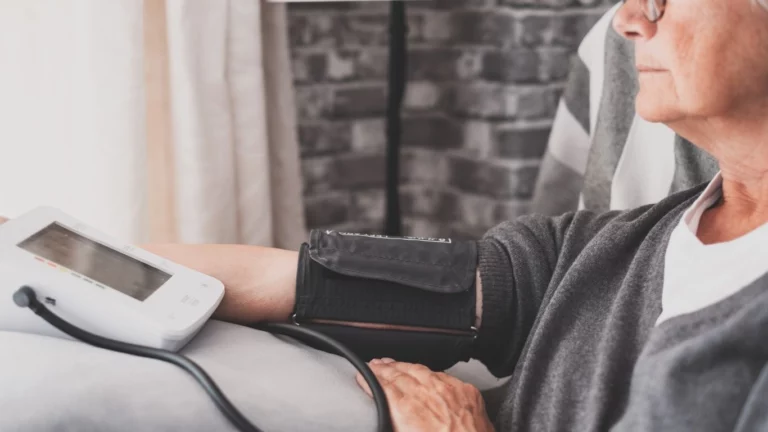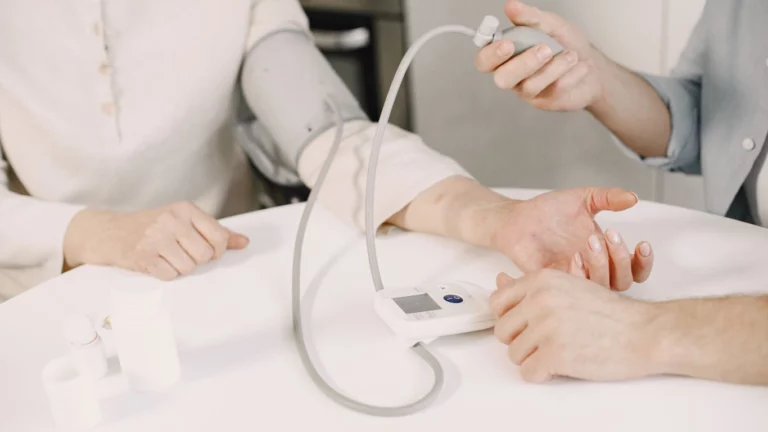Shocking Truth: Can Asthma Cause Clicking Sounds in Chest?
Can asthma cause clicking sounds in chest? You’d be surprised how often I get asked that, especially in the clinic when someone’s feeling panicky and hears weird noises during breathing. As a pulmonary nurse practitioner who’s spent years listening to all sorts of chest sounds through a stethoscope, I can tell you—clicking sounds aren’t always textbook symptoms, but they can show up in some not-so-obvious ways. Let’s talk about what might be going on when you hear those unexpected sounds and what asthma has to do with it.
Understanding Asthma Beyond the Basics

We all know asthma as that chronic lung condition that makes it hard to breathe. You’ve probably heard the classic descriptions: wheezing, shortness of breath, chest tightness, and coughing. But sometimes, patients come in describing things like “clicking” or “popping” sounds in their chest—and while that’s not always a textbook asthma symptom, there’s definitely more to the story.
I remember one patient, a young college student, who swore she heard a clicking noise whenever she took a deep breath during allergy season. She didn’t have a cold, didn’t feel pain—just this annoying click. Turns out, her asthma was flaring up from spring pollen, and her airways were inflamed enough to cause all sorts of weird sensations.
So, What’s That Clicking Sound Really?
First off, let’s clear something up: not all sounds you hear in your chest come directly from the lungs. Clicking noises can come from several places, including:
- Inflamed airways: When your bronchial tubes are swollen or filled with mucus, they might produce unusual sounds as air struggles to pass through.
- Pleural movement: The lining of your lungs (the pleura) can sometimes make subtle popping or clicking sounds, especially if there’s inflammation or dryness.
- Muscle strain or joint movement: Yes, even joints in your chest wall or movement in the sternum can mimic a clicking sensation.
From a clinical perspective, asthma doesn’t directly cause clicking in the same way it causes wheezing. But—and this is key—it creates the conditions where odd sounds become more likely. Think inflamed, narrowed airways, increased mucus production, and heightened sensitivity in the chest area.
What Makes Asthma Symptoms So Varied?

One thing I wish more people knew? Asthma isn’t one-size-fits-all. Some patients wheeze so loudly you can hear it across the room. Others—especially those with mild or atypical asthma—might just feel tired, tight-chested, or like their breath’s “stuck.” The symptoms can shift depending on:
- Environmental triggers: Like pollen, pet dander, or cold air.
- Level of airway inflammation: More swelling = more resistance = more odd noises.
- Individual anatomy and sensitivity: Every chest cavity is a little different. What one person describes as “clicking,” another might call “popping” or even “fluttering.”
In my years of doing pulmonary function testing and managing chronic asthma cases, I’ve learned to really trust how patients describe their experience—even if it doesn’t sound medical at first. Sometimes it’s those offbeat symptoms, like clicking in the chest, that help us catch a flare-up early or uncover a less obvious diagnosis.
When to Worry About Chest Sounds
Okay, so you’re hearing clicks—should you panic? Not necessarily. But you should get it checked out if:
- It’s new or getting worse
- You’re also short of breath, wheezing, or coughing more than usual
- There’s pain involved or the sound comes with sharp movements
As much as I wish I could say, “It’s nothing,” chest noises can signal a whole range of things—from asthma flares to things like bronchitis or even costochondritis. It’s always better to have someone take a listen and do a full workup if needed.
Asthma and Chest Clicks: The Overlap

Here’s where it all comes together. Can asthma cause clicking sounds in chest? Not typically in the way it causes wheezing, but it can definitely create the perfect storm of conditions—like airway irritation, increased mucus, and extra effort to breathe—that might result in these weird, subtle noises. Plus, when you’re hyper-aware of every breath (because asthma makes you feel like you’re always on alert), you notice things others might ignore.
In my practice, I take these complaints seriously, even if they seem small. They’re part of your full respiratory picture. And often, these little details lead us to tweak an inhaler dose, test for allergies, or catch early signs of a flare-up before it gets worse.
Could It Be Something Other Than Asthma?

Now, even though we’re deep-diving into asthma here, it’s super important to recognize that clicking sounds in the chest aren’t always rooted in asthma alone. I’ve had a few patients come in convinced their asthma was acting up, only for us to discover something completely different—like a little pleural rub or even a musculoskeletal issue that mimicked a respiratory symptom. Happens more often than you’d think.
Let’s break it down a bit. Here are a few other things that could cause clicking or popping sounds in the chest:
- Costochondritis: This is basically inflammation of the cartilage that connects your ribs to your sternum. It can create a popping or clicking sound, especially when moving or taking deep breaths.
- Pleural Effusion or Friction Rub: When the lining around the lungs gets irritated, you might hear a subtle rubbing or clicking sound. It’s rare, but I’ve caught it in patients with autoimmune conditions or infections.
- Respiratory infections: Especially with bronchitis, mucus can cause all sorts of funky noises when air’s moving past it. Sometimes a “click” is just a tiny bubble of trapped air breaking loose.
- Chest wall or joint issues: Believe it or not, some sternoclavicular joint movement can actually click! It’s not dangerous, but it can be distracting and confusing if you’re expecting everything to sound “normal.”
So, can asthma cause clicking sounds in chest? Possibly—but if it’s not typical for you, or if it feels totally new, it’s always worth digging a little deeper. I never like to assume when it comes to respiratory stuff, and neither should you.
How to Monitor and Track Unusual Chest Sounds

One thing I always suggest to my patients who mention strange chest sensations or noises is to keep a log. Honestly, this has helped me more times than I can count to pinpoint patterns and catch early signs of issues. Just a simple notebook or phone note that tracks:
- When the sound happens (time of day, during exercise, at rest, etc.)
- What you were doing right before it started
- Any accompanying symptoms (tightness, cough, shortness of breath)
- What helped it stop (inhaler use, resting, changing position)
These details paint a much clearer picture than “it clicks sometimes,” and they can help your healthcare provider get to the root faster. Personally, I’ve caught early asthma exacerbations and even minor rib joint issues just from these logs. It’s an easy step that can go a long way.
What Your Inhaler Might Be Telling You
Now, if you’ve got asthma and you’re hearing these clicks or pops, check in with how often you’re using your inhaler. Over the years, I’ve had patients who didn’t realize they were slowly increasing their rescue inhaler use until they were at 4–5 puffs a day. If your rescue inhaler feels like a lifeline lately, your asthma might not be as controlled as you think.
This kind of overuse can actually be your body’s way of saying, “Hey, something’s not quite right down here.” And yes, when inflammation and airway irritation go up, so does the chance of hearing those strange chest sounds.
When in doubt? Schedule a follow-up. A quick lung function test or even a chest listen with a fresh perspective can help adjust your treatment plan before things spiral.
Preventive Tips: Keeping Asthma (and Noisy Chests) in Check

If you’re like most of my asthma patients, you’re always looking for ways to keep things calm and predictable. While clicking sounds in the chest can be harmless, it’s still better to prevent whatever might be causing them in the first place. Here’s what I usually recommend:
- Stay on top of your meds: Don’t skip your controller inhalers just because you’re feeling okay. That’s when inflammation creeps back in.
- Know your triggers: Whether it’s cold air, dust mites, or stress (yep, stress can tighten airways too), avoiding what sets you off makes a huge difference.
- Use a peak flow meter: This is such a simple but powerful tool. It helps catch dips in lung function before symptoms hit.
- Warm up before exercise: If you’re prone to exercise-induced asthma, a proper warm-up helps prevent those post-workout chest sensations.
And here’s a tip from one nurse to another human: if you ever feel unsure about what your body’s telling you, trust that instinct. You know your breathing better than anyone else. If something feels “off”—even if it’s just a small click or pop—it deserves a closer look. I’ve learned that early attention is everything, especially with asthma.
What To Expect at Your Doctor’s Visit for Chest Clicking

If you’ve made it this far, chances are you’re still wondering: can asthma cause clicking sounds in chest? We’ve talked about how it *can* be related—indirectly through inflammation and airway changes—but there’s still no substitute for a proper checkup if something feels off.
When you walk into your provider’s office and say, “Hey, I’m hearing this weird clicking in my chest,” they might raise an eyebrow at first. But trust me, it’s not as uncommon as it sounds (pun intended). I’ve personally evaluated quite a few patients with this complaint, and here’s what usually happens during the visit:
- Thorough History: We’ll talk about when the clicking happens, how often, what it feels like, and if you’ve noticed any other symptoms creeping in.
- Physical Exam: Expect a detailed listen with the stethoscope—front, back, sides—we’re hunting for wheezes, crackles, or anything out of the ordinary.
- Pulmonary Function Testing: If your asthma hasn’t been evaluated in a while, you might get spirometry to measure how well air flows through your lungs.
- Imaging: If something doesn’t quite add up—or if we suspect it’s not asthma—we might do a chest X-ray to rule out other causes.
In my experience, most patients leave these appointments feeling relieved—not just because they got checked out, but because we actually listened to them. And that’s something I take seriously in my practice.
When Chest Sounds Are a Red Flag

Alright, let’s talk about when chest clicking is more than just a quirky annoyance. While asthma isn’t usually dangerous when it’s well-controlled, there are times when things need urgent attention. Here are a few situations where I’d tell you to get checked out ASAP:
- Sudden, sharp pain with breathing: Could be pleurisy or even a small pneumothorax.
- Shortness of breath that gets worse quickly: This can signal a severe asthma attack or another condition like pulmonary embolism.
- Fever and chest discomfort: Might indicate an infection—pneumonia or bronchitis are worth ruling out.
- Clicking with swelling or tenderness in your chest/rib area: Could be a joint or cartilage issue that needs further imaging.
Bottom line: never ignore new or worsening symptoms. I’d rather have someone come in for something that turns out to be nothing than miss something important. Trust your gut—your body knows when something’s not quite right.
Living with Asthma: Don’t Let the Noise Freak You Out
One of the biggest challenges my asthma patients face is the unpredictability. One week everything’s calm, and the next? Boom—cold air, allergens, or stress kicks up a storm. Add strange chest sensations into the mix, and it’s no wonder people get anxious.
So, let’s normalize it: you might occasionally hear a sound or feel something that doesn’t fit the asthma “textbook.” And while it’s important to evaluate it, it doesn’t automatically mean something dangerous is happening. More often than not, it’s a sign to tweak your treatment plan or pay a little more attention to triggers.
Here are a few things I tell my patients who deal with this kind of unpredictability:
- Have an updated asthma action plan—it should include what to do when symptoms change or weird new ones show up.
- Don’t be shy about tracking your symptoms—you’d be amazed what patterns show up when you jot things down.
- Keep your rescue inhaler with you at all times—even if you rarely use it. It’s peace of mind in your pocket.
- Prioritize your follow-ups—even if you feel “fine,” regular check-ins help catch subtle changes early.
Personally, I think one of the most empowering things for people with asthma is knowing that their voices matter. If you hear something weird in your chest—even if it seems small—it’s valid. Bring it up. Talk about it. That’s how we catch things early and keep you feeling your best.
References
Disclaimer
This article is for informational purposes only and is not intended to replace professional medical advice, diagnosis, or treatment. Always consult with a qualified healthcare provider about any questions you may have regarding a medical condition. As a pulmonary nurse practitioner, the experiences shared here reflect my clinical observations and should be used as a guide to support—not substitute—your personal health journey.

Bianca Nala is a compassionate Nurse Practitioner with a strong background in primary and respiratory care. As a health writer for Healthusias.com, she combines her clinical expertise with a talent for clear, relatable storytelling to help readers better understand their health. Bianca focuses on topics like asthma, COPD, chronic cough, and overall lung health, aiming to simplify complex medical topics without losing accuracy. Whether she’s treating patients or writing articles, Bianca is driven by a single goal: making quality healthcare knowledge accessible to everyone.







